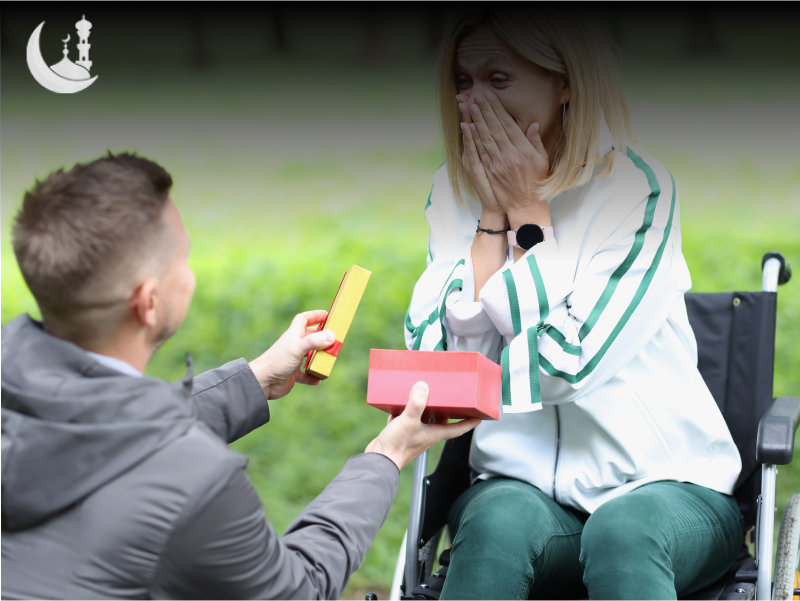In the busy rhythm of the day, mental health has become highly regarded as part of total health. On the other hand, traumatic invalidation has become one of the concerns often neglected in practice but affects mental health significantly. From the perspective of Islamic counseling, this blog will describe the concept of traumatic invalidation and its association with emotional abuse along with the ways it should be coped with.
What is Traumatic Invalidation?
Traumatic invalidation is any traumatic act that negates or cancels out one’s experience. It is the process of ignoring a person’s feelings, thoughts, or experiences and rating them as insignificant in general. Sometimes a person is invalidated in family, friendship, or work relations. There are some instances of overt invalidation, such as comments and name-calling, and then there are those not-so-apparent forms of invalidation, such as gas-lighting and minimizing your feelings. Validation is directly linked to good mental health.
Trauma destroys in the victim the ability to have trust in their emotions and feelings. An emotionally abused person may end up being nervous, confused, or selfish during moments when he or she doubts himself or herself. It is dangerous ground for serious mental conditions. On the contrary, if they get the validation they seek, it benefits the well-being of the person.
Traumatic Invalidations and Emotional Abuse Connection
Hurtful behaviors take in the form of emotional abuse, which is when someone hurts another person’s sense of self-worth. Often associated with traumatic invalidation, emotional abuse is naturally tricky to determine wherein areas of damage have been inflicted on the victim. If an abuser makes his spouse feel that their emotions are worthless by always labeling them as “you’re overreacting” or “too sensitive,” then he is being abusive by emotional terms without his victim even knowing.

Such emotional abuse can lead to terrible effects. The victim becomes perpetually depressed, anxious, and isolated. In addition to this, the abusive words of the abuser, which the victim internalizes, provide feelings of shame and worthlessness and hence increase the intensity of the hurt experienced.
The Psychological Impact of Traumatic Invalidation
Traumatic invalidations can lead to trauma that primarily impacts the mental aspect in the following key ways:

- Low Self-Esteem: Those poor individuals who are constantly belittled will start losing confidence in themselves. They will get into a vicious cycle from which they may not be able to come out and at certain times, will not be able to decide anything or even utter a word for fear of being rejected once again.
- Anxiety and Depression: It will make him anxious and depressed in all those places he is living in and, therefore, makes both conditions much more deadly. Here, the sense of loneliness and/or helplessness can add to the kind of mental disorder created.
- Problems in interpersonal relations: Victims who have passed all the previous issues and already experienced their trauma will find it quite problematic to really trust other people. They would not be able to develop such good relations as they had feared somebody would put them down or ignore their feelings once again.
- Internalized Shame: Eventually, self-doubt turns into shame. Invalidators may make victims believe that it is wrong to have certain feelings, or that they deserve less love, sympathy, or respect.
Recognizing Traumatic Invalidation
Because we are so eager to learn more about how pathological invalidation affects the mind, it is crucially important to be able to recognize the following signs:

If you feel you are not being taken seriously, or kept above water, then you are being ignored.
Feeling You Are Not Believed: If you keep asking yourself whether you are right or wrong, then you were not believed.
Fear of Emotional Expression: You might have felt that way because you are afraid to talk about how you really feel for fear of being judged. That is, something happened in the past that made you fear talking about your feelings.
How To Heal From Traumatic Invalidation
Having an invalidating experience can be extremely traumatizing; still, there are several healthy ways to deal with it and heal, get a better feel about oneself, and bring back the wounds:
- Validation: Spend time with people who prove your emotions. Talking to people who understand and care about you might make up for all the invalidation you had to go through.
- Self-compassion. Treat yourself well. Believe in your heart that what you felt and saw is real, no matter what others might be saying.
- Therapeutic Interventions Seek professional counseling. Try to find someone who is trauma-informed or who recognizes that they provide Islamic counseling. They may be able to educate you on how to move through life with what’s occurred and help you regain your self-esteem.
- Mindfulness and meditation will let you move your thoughts through your feelings into your core. Mindfulness will stop your mind from judging them. Gradually, this will make you learn to accept yourself.
- Journaling- Despite how much a person develops, writing down your thoughts and feeling them as they are indeed helps one work through them. It gives individuals tools to actually release feeling and perhaps even accept the feeling in one’s personal space.
- The Blessing of Faith: To the believer, faith is the congregation and peace; faith is the answer. The religious teachings of Islam could make individuals change towards new healing and feelings of self-worth and benevolence.
| Aspect | Description |
|---|---|
| What is Traumatic Invalidation? | Traumatic invalidation occurs when a person’s emotional experiences are dismissed, minimized, or ignored. This form of invalidation can lead to long-term emotional and psychological pain. |
| Emotional Abuse | Invalidation is often linked to emotional abuse, where an individual’s feelings are consistently undermined. This can lead to a loss of self-esteem and confusion in recognizing emotions. |
| Mental Health Impact | Continuous invalidation can cause anxiety, depression, and a distorted self-view. It can trigger trauma responses, creating a lasting impact on emotional well-being. |
| Signs of Traumatic Invalidation | These signs include self-doubt, reluctance to express feelings, emotional numbness, and confusion about one’s emotions. It can also lead to feeling unworthy or misunderstood. |
| Coping Strategies | Healing requires recognizing the invalidation, seeking validation from healthy sources, and engaging in self-compassion. Counseling or therapy can be essential in this recovery process. |
| Islamic Perspective | Islam encourages validation of emotions and promotes emotional well-being. Traumatic invalidation is seen as a violation of individual dignity and must be addressed compassionately. |
The Role of Islamic Counseling
Holistic healing is a healing condition, which means healing and care for all aspects of a person’s spiritual, social, and mental health; Islamic counseling is very important in that. A counselor trained in this area could offer a safe place for a person to share thoughts that also offered faith-based practices.
Islam teaches human beings to be gentle and tolerant. That may perhaps be what makes most people start healing from the pain of invalidation. If you have always felt that emotions are human and should be respected, then you might feel there is hope with these teachings.
Conclusion
This invalidation based on trauma is extremely unhealthy for someone’s mental health and is generally accompanied by emotional abuse. As much as knowing how one would heal is an essential part of recovery, proper utilization of coping strategies and support through the guidance of the Islamic counseling standards would give people back their power to reclaim their stories and make them more resilient.
Read Also: Understanding the Seven Types of Boundaries in Relationships
This is for all those who, like millions of others, are suffering from what such extreme invalidation is doing to them gives hope that they are not alone, and I can extend that hope and healing to you as well. What you can do first to start taking back your mental health and well-being is to ensure that you validate your experiences.
FAQs
Q1) What are the symptoms of traumatic invalidation?
Traumatic invalidation often materializes in the form of being constantly overlooked, questioning whether you’re even feeling something and a fear of allowing yourself to feel. If, at times, you get the feeling that people brush away and talk down your thoughts and feelings, or if you never actually seem to be able to believe yourself, these could be signs that you suffered some degree of traumatic invalidation.
Q2) How is traumatic invalidation related to emotional abuse?
Traumatic invalidation describes a form of emotional abuse, in which the person’s emotions and experiences are regularly downplayed or belittled. These may contribute to a toxic environment that erodes self-esteem and anxiety, depression, and relationship difficulties, also. Both concepts do relate to the component of validation in terms of mental health.
Q3) How could one addressing traumatic invalidation deploy those strategies to ultimately overcome it?
Such coping mechanisms as seeking validation from supportive others, self-compassion, therapeutic interventions, and mindfulness would therefore be in order. Journaling can help process emotions; however, seeking and attuning with faith and spirituality, especially via Islamic counseling, would further strengthen the healing journey and guide the process further.






